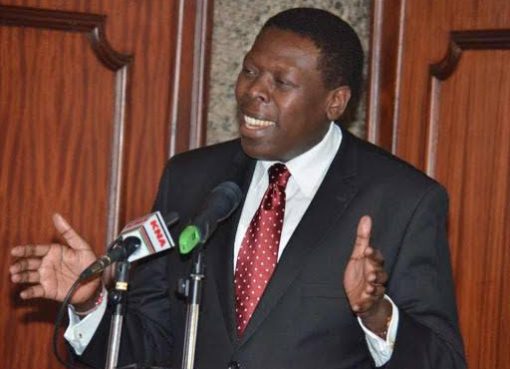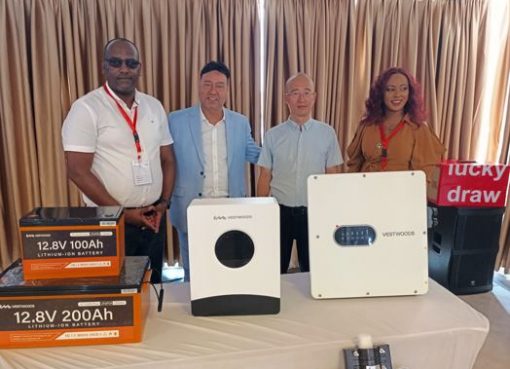Global Tapestry of Alternative (GTA) , a platform that brings global organizations together and creates spaces of collaboration and exchange on matters affecting the world such as climate crisis, will hold its first ever Physical Assembly in Kenya.
The platform that was launched in 2019 will next week, in Laikipia county bring together over 60 people from the Civil Society Organization from over 25 different countries to challenge each other, offer solidarity and interweave their initiative of addressing the multiple crisis of climate change among other in common action to give them visibility.
Kenya, like other parts of the world is facing several challenges including rising cost of living and the CSOs are working towards highlighting and trying to alleviate the situation by demonstrating grounded solutions for food and other basic needs, livelihoods and governance.
Speaking in Kiambu County ahead of the Assembly, Simon Mitambo from Society for Alternative Learning and Transformation (SALT) said the meeting will bring about building solidarity from the different organizations and address some of the common challenges such as climate change, gender matters, farming and even inequality.
“ We will be discussing what alternatives that national and regional organizations are working towards in order to seize the opportunity ,weave our story together through solidarity so that if various systems collapse we have a basket of alternatives to work on”, he said
Mitambo who works extensively with indigenous and local knowledge systems to revive tradition by cultural diversity explained that at the grassroots level they want to work with communities to empower them to build their own autonomy, making decisions on how to be governed on matters of farming.
“When we talk about alternates is that organizations and networks have documented most of their work and which has been embraced and worked, governments should listen to the people who can also offer possible solutions when it comes to some of the policies”, he added
Mitambo gave an example of bio fertilizer which is a serious problem in the country as the chemical and industrial fertilizer is affecting soils noting that there are effective traditional knowledge that are cost effective and that some communities are practicing and therefore governments should have policies that resonates with what farmers are doing on the ground.

He emphasized on the need for traditional knowledge to be used as it can contribute in addressing matters such as risks posed by climate change and the impact it has exposed on the communities such as environmental degradation , racism and social injustice
Mitambo named some of the countries that will be attending the 6 days Assembly from Kenya, South Africa, Zimbabwe, Mozambique, Latin America, India, Mexico and also others with a sole purpose of endorsing and weaving their ideas through sharing and learning.
The Global Tapestry Alternatives (GTA) co-team member Ashish Kothari from India said people all over the world are struggling to find solutions on crisis facing the world such as climate, inequality, discrimination, gender violence and are coming up together with ground solutions on issues such renewable energy, food system and coming up with alternatives.
He said the meeting in Kenya gears towards bringing solutions, learning from each other, collaborating and creating more of critical mass for shift from country to other levels that address issues such as climate collapse talks, unemployment’s and build power on the ground for local people to do things for themselves .
“Together we can push governments into the right kind of policies with the hope that the outcome is in much greater strength in networking process and creation of road maps on how we want to move forward in supporting local democratic struggles, local food systems and also creating more networks and weavers in other parts of the world”, he said
Vasna Ramasar , a Scholar of the Lund University and also from the GTA team said alternatives on agro ecology is the solution to problems of food security , hunger , climate change, inequality not only in Kenya but globally.
“GTA is making linkages and the meeting of the many of civil societies who will be at the forefront of looking for ways to work organically with nature considering that traditional indigenous knowledge is the way forward for sustainability.
She mentioned that gender is one of the main things that needs to be addressed since women have borne the responsibility of feeding and caring for households and is a burden to them when it comes to providing.
“Women have collective organizing skills that can bring out innovative solutions and usually take a huge part of farmers in the world, seizing opportunities is one of the pathways to find ways of empowering them”, Ramasar said
During the long week assembly participants will share each other’s works and perspectives, make plans for the GTAS further work, as well as spend time with two local communities to understand how they are working to assert their rights to autonomy by recalling their community ecological governance system and also on community led conservation and livelihoods.
GTA hopes to spread step by step as an expanding complex set of tapestries building bridges between existing networks of alternatives across the globe and promote the creation of new networks through collective webs called ‘weavers’ by promoting regional, national and global encounters to stimulate global solidarity with initiatives that are threatened and otherwise in need of support.
By Wangari Ndirangu




